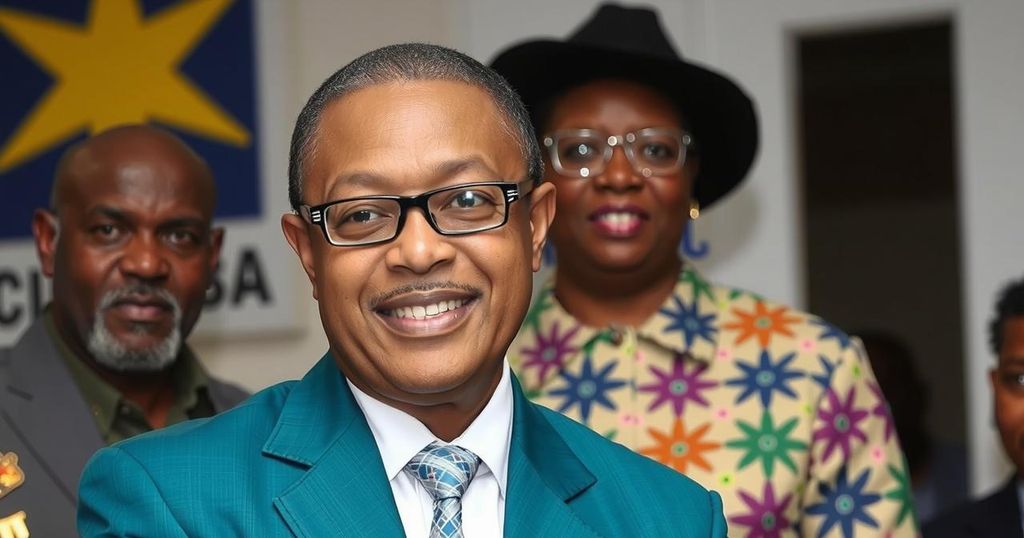Namibia Election: IPC Rejects Results Amid Allegations of Irregularities
The IPC in Namibia has rejected the results of the recent general election, citing significant electoral irregularities and logistical issues. Presidential candidate Panduleni Itula accused the election process of malpractice, while initial results show Swapo’s Netumbo Nandi-Ndaitwah leading. The IPC plans to pursue legal action as they seek justice for voters affected by the election mismanagement.
In the aftermath of Namibia’s recent general election, the principal opposition party, the Independent Patriots for Change (IPC), has declared its refusal to accept the election results due to reported logistical failures and purported electoral misconduct. Panduleni Itula, the IPC’s presidential candidate, characterized the irregularities as “glaring and undeniable” in his remarks. While the electoral commission faced challenges that resulted in extended voting in several areas, the current leader of the South West Africa People’s Organisation (Swapo), Netumbo Nandi-Ndaitwah, is pursuing the presidency amid concerns over the election’s legitimacy. The IPC intends to seek judicial redress and has encouraged citizens affected by the electoral process to report their grievances to law enforcement agencies. Meanwhile, initial vote counts indicate that Nandi-Ndaitwah leads with approximately 48% of the vote against Itula’s 30%. As the political climate evolves, the outcome of this election poses significant implications for Namibia’s democratic framework.
Historically, Namibia has been governed by the Swapo party since achieving independence from South African rule in 1990. Swapo has maintained a dominant position in the political landscape of Namibia, although recent electoral performances have suggested a shift in public sentiment, as exhibited by a notable decline in their vote share below 60% in the previous election. The country, characterized by a diverse electorate of approximately three million citizens, faces challenges typical of many post-liberation governments in Southern Africa, including declining support for liberation movements. The legal and administrative challenges presented by the current election raise questions regarding the integrity of the electoral process and the future political stability of Namibia.
In conclusion, the refusal of the IPC to accept the election results highlights significant tensions surrounding the electoral process in Namibia. As allegations of malpractice surface and calls for judicial intervention arise, the situation emphasizes the challenges faced by the Swapo party in maintaining its hold on power amid shifting voter perceptions. The ongoing vote counts will ultimately determine the next steps for both the IPC and Swapo.
Original Source: www.bbc.co.uk




Post Comment